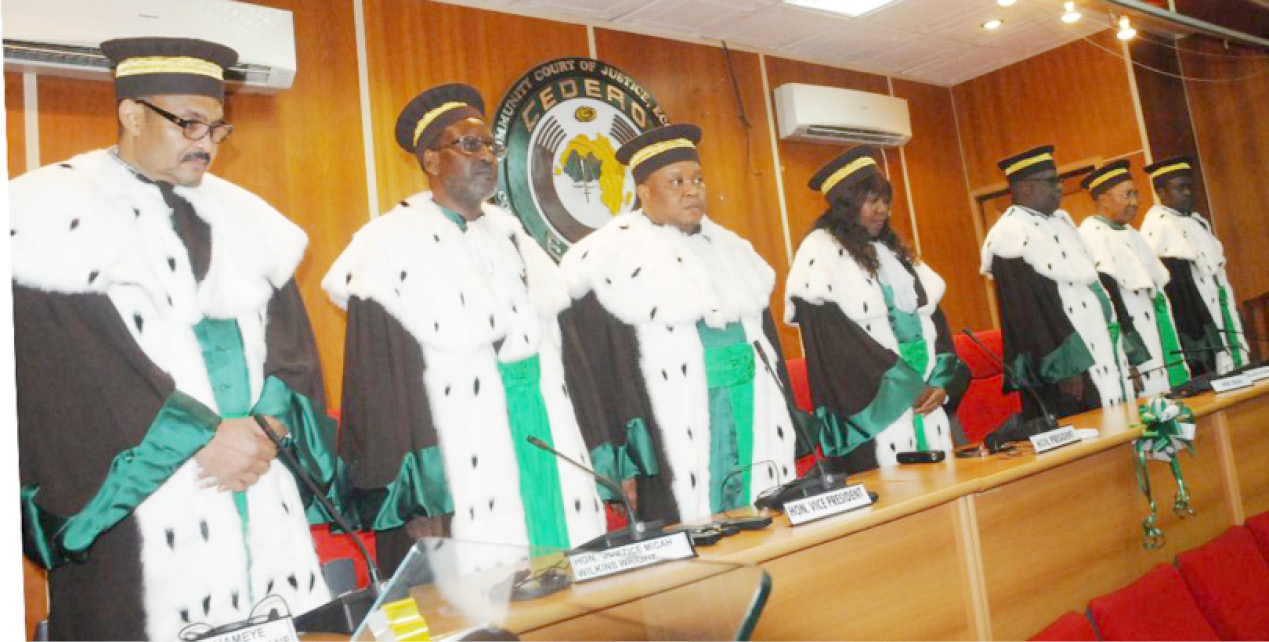Member States refusing to ratify ECOWAS Court decisions – Chief Registrar
The Chief Registrar of the ECOWAS Court, Dr Yaouza Ouro-Sama, has lamented that most Member States have refused to ratify the Court’s instruments. The Chief Registrar expressed concern at the appalling level of ratification of instruments of the Court during a meeting with a delegation from the Dakar-based ECOWAS Gender Development Centre in Abuja. PHOTOS: […]

FILE PHOTO: A panel of ECOWAS Court justices during a ceremonial sitting
The Chief Registrar of the ECOWAS Court, Dr Yaouza Ouro-Sama, has lamented that most Member States have refused to ratify the Court’s instruments.
The Chief Registrar expressed concern at the appalling level of ratification of instruments of the Court during a meeting with a delegation from the Dakar-based ECOWAS Gender Development Centre in Abuja.
He said the only exception was the 1991 founding Protocol which all the Member States have ratified except Cape Verde and Guinea Bissau.
The Court is now working on a programme through which it would engage Member States to improve the level of ratification of the three regional instruments on the Court and contribute to improving the enforcement of its decisions by the States, he said.
“Some States have been relying on their non-ratification of these Protocols as a basis for the non-enforcement of the decisions of the Court,” Ouro-Sama said in a statement by Elohor Ovadje the spokesman of the Court.
He said that the intention of the programme is to work with the relevant Member States to ensure that at least three of such States ratify the Protocols outstanding against them each year.
The spokesperson for the Centre’s delegation, Mr Awudu Ahmed Gumah, said the visit was to secure the cooperation of the Court in the project designed to advance gender equality and women empowerment within the ECOWAS Commission, institutions and agencies of the Community.
Mr Gumah, who is the Head of Planning, Research, Monitoring and Evaluation of the Centre, said the project has seven components related to the various identified issues towards the promotion of gender equality while acknowledging that the Community has made some progress in addressing the issue of gender equality.
